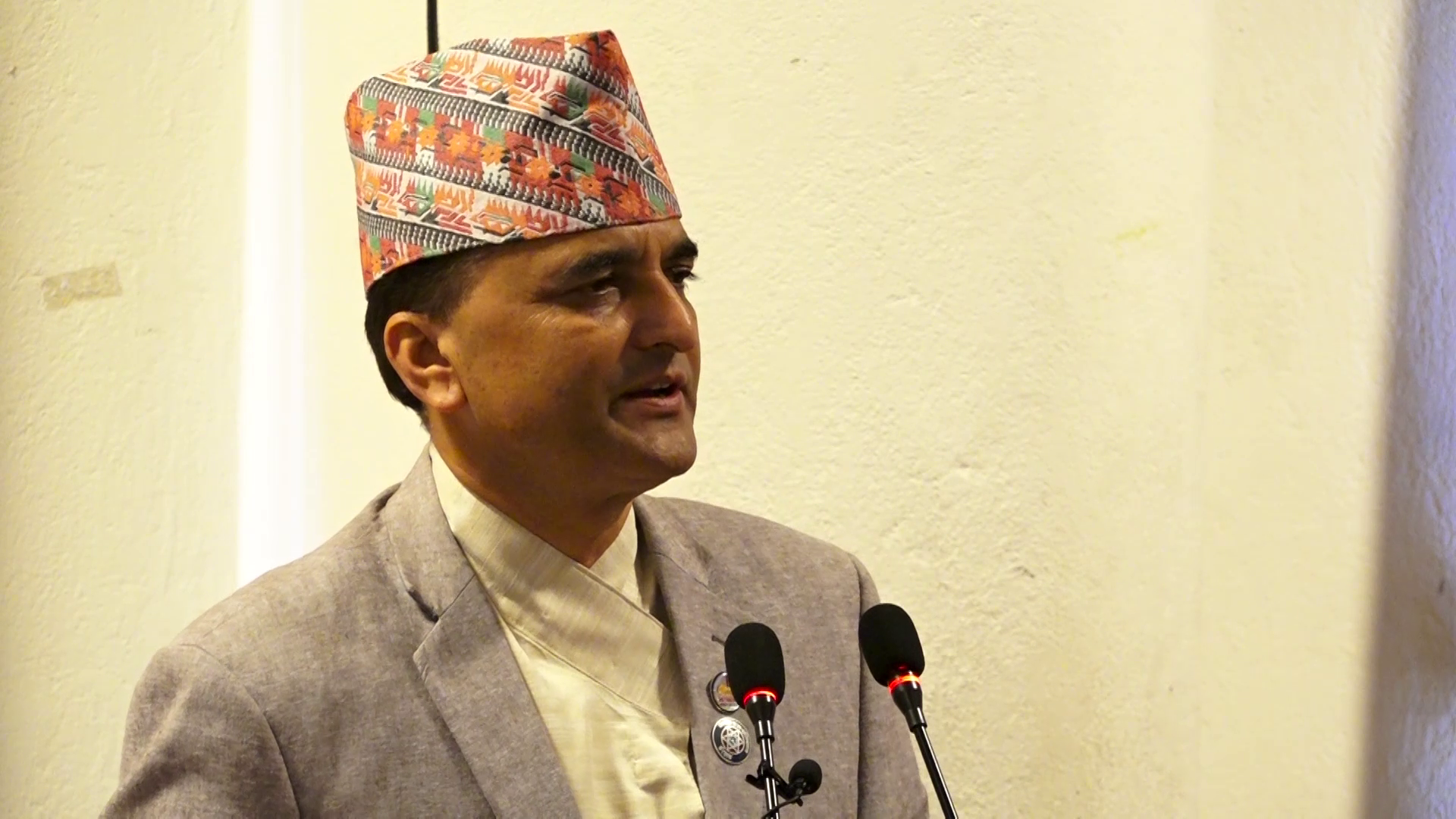

KATHMANDU: CPN-UML Secretary and Member of Parliament Yogesh Bhattarai has taken sharp aim at Maoist Centre Chairperson and former Prime Minister Pushpa Kamal Dahal ‘Prachanda’, questioning his stance on the controversial “cooling-off period” provision in the Federal Civil Service Bill.
In a Facebook post addressed directly to Prachanda, Bhattarai accused the former Prime Minister of displaying double standards and attempting to shift blame onto others, including Prime Minister KP Sharma Oli.
Bhattarai began his post expressing serious concern over Prachanda’s recent statement suggesting that Prime Minister and CPN-UML Chair KP Sharma Oli should also be investigated for the tampering of ‘cooling-off’ provision in the bill.
Bhattarai clarified that CPN-UML stands firmly in favor of the clause, which aims to prevent senior bureaucrats from immediately taking political appointments after retirement.
He emphasized that the proposal to insert the provision was initiated by lawmakers themselves, including those from the UML, and that the party continues to support it without reservation.
He then pointedly reminded Prachanda that when the bill was first tabled in Parliament on Falgun 11, 2080 (February 23, 2024), Dahal was the sitting Prime Minister. The Cabinet meeting chaired by him had approved the bill without any reference to the cooling-off period.
Bhattarai questioned why Prachanda, if genuinely committed to the idea, failed to include the clause when he had the executive authority to do so.
“Now that you sit in the opposition bench, why has this ghost of the cooling-off period suddenly awakened?” he asked, accusing Prachanda of political opportunism.
Further, Bhattarai highlighted Prachanda’s role as the senior-most member of the State Affairs and Good Governance Committee, which had decided to include the cooling-off provision.
He questioned why this key recommendation was modified or weakened when the committee’s report was submitted to Parliament.
Bhattarai argued that as a senior member of the committee, Prachanda himself should be held morally accountable for any inconsistencies.
He concluded by cautioning Prachanda not to let his own words become a noose around his neck.